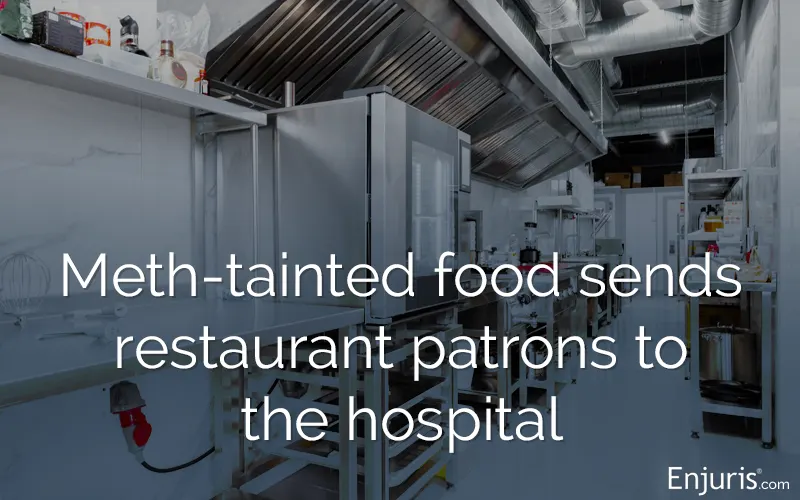
A student with a heart condition drank a beverage she didn’t know had more caffeine than two Red Bulls, and she died as a result
Panera marketed its beverage as “lemonade”, when it was actually anything but. The product had far more caffeine than the company indicated, and the result was the death of a young woman.
Sarah Katz was a 21-year-old student at the University of Pennsylvania. The Ivy League student had taught CPR in underserved communities and was a research assistant at a children’s hospital.
She knew that she had long QT syndrome, type 1, which is a heart condition that causes fast and irregular heartbeats. Sarah was diagnosed at five years old and her condition was well-managed with medication and by her limiting caffeine. Her doctors had told her to avoid consuming energy drinks, and she was careful to do so. Her roommate described Sarah as being “very, very vigilant about what she needed to do to keep herself safe.”
That’s why Sarah’s roommate says Sarah would never have purchased the drink she did from Panera if she knew how much caffeine it contains.
On September 10, 2022, Sarah bought a Charged Lemonade at a Panera Bread cafe. The beverage was listed on the menu alongside the non-caffeinated and less caffeinated offerings. It was advertised as “plant-based and clean” and listed as containing the same amount of caffeine as a typical Panera dark-roast coffee. Sarah went into cardiac arrest a few hours after drinking the lemonade and subsequently died. Now her parents have filed a wrongful death lawsuit against Panera.
Update: On October 8, 2024, the family of Sarah Katz settled their wrongful death lawsuit against Panera Bread just days before the trial was set to begin. While the Katz family's lawsuit is resolved, no details about the settlement have been disclosed. Panera discontinued its Charged Lemonade nationwide earlier this year following several lawsuits.
Was Panera responsible for Sarah’s death?
The large Charged Lemonade contains 390 milligrams of caffeine, which is more than any size of Panera dark roast coffee. It’s also more than standard cans of Red Bull and Monster energy drinks combined. It also contains guarana extract, which is a stimulant, and nearly 30 teaspoons of sugar.
The Katz family’s lawyer says Panera’s marketing is misleading because people assume “lemonade” is safe, but this was not actually lemonade. It was an energy drink with lemon flavor. There were no warnings that this drink could result in dangerous effects, like changes to blood pressure, heart rate or brain function.
Patients who have the same condition as Sarah are typically told that moderate amounts of caffeine are safe; they could have a small coffee or a soda with caffeine each day. Energy drinks, however, are considered risky.
Panera advertises Charged Lemonade as “the ultimate energy drink” on its website, but it didn’t say that in the store at the time when Sarah purchased it.
The elements of negligence are the same for a wrongful death action as for any other personal injury lawsuit.
Notably, Sarah is not the only person to have died after drinking a Panera Bread Charged Lemonade drink.
Negligence is the failure to exercise the appropriate level of care.
This could include anything from a driver who runs a red light to a restaurant that serves food cross-contaminated with allergens. In this instance, it’s less of an issue that Charged Lemonade exists, as it is that the restaurant did not clearly advertise its ingredients or the amount of caffeine and stimulants in the beverage. In fact, Panera specifically said on its in-store menu that the caffeine content was equivalent to a dark roast coffee when, in fact, it is equivalent to two Red Bulls.
One way to frame negligence is to ask if an ordinary person in the defendant’s position (in this instance, Panera’s corporate body) would reasonably anticipate that the action or inaction could cause the harm that ultimately resulted.
The Katz family’s lawyer will likely argue that the answer is yes. In fact, Sarah’s heart condition affects one in about 2,000 people. In addition, caffeine can have consequences for people with a range of health considerations—not just this one. It can also be dangerous to pregnant and breastfeeding people and children, among others.
Lots of people confuse energy drinks with electrolyte or hydration drinks. For instance, most versions of popular Gatorade and Powerade sports drinks do not contain caffeine (some do, like the BOLT24 Energize + Caffeine). But kid-favorite drink Prime has 200 milligrams of caffeine… which is a lot for a child, but still about half the amount in the Panera Charged Lemonade.
But with these types of drinks being common on store shelves, school playgrounds and sports fields, it’s easy to see how a parent might assume that a product called “Charged Lemonade” is safe for their young child.
It’s also easy to understand why someone like Sarah, who was hypervigilant about her health, would think it was a safe drink for her.
Burden of proof
The plaintiffs (Sarah’s parents) will need to prove by a preponderance of the evidence that Panera was liable for her death. In other words, that there is a greater than 50% chance that their claim is the truth.
In addition to the claim that Panera misrepresented its drink and that it was negligent in not making customers aware of the potential dangers, they also need to prove that the beverage caused Sarah’s death.
That will be up to medical experts to prove in court. They will need to demonstrate that there is no other possible cause of her death, including the condition, itself.
Eggshell plaintiff rule
The Katz family’s lawsuit will likely benefit from the “eggshell plaintiff rule.” This legal concept holds that even though a defendant can’t normally be held liable for an unforeseeable injury, it can be liable if the injured person has a condition that would make the action worse than usual. In other words, they must “take their victim as they find them.” In other words, even though Panera could not foresee that Sarah’s reaction to the drink would be more severe than most, they still acted in a manner that caused her injury.
Sarah’s parents’ lawsuit seeks compensatory and punitive damages.
No amount of money can bring Sarah back, and the incident leaves a hole in her parents’ hearts forever. Although the purpose of a personal injury lawsuit is to make the plaintiff whole, they will likely never feel whole again—but their lawsuit might succeed in deterring Panera and other restaurants from the practice of offering food or beverages without an accurate description of their ingredients and risks, which could save more lives.
As for the financial recovery, that’s yet to be determined as the case begins its process through the legal system.
If you’ve lost a family member in a way that you believe is due to someone’s negligence, you can consult a personal injury or wrongful death lawyer for information about the potential for a lawsuit.
Restaurant Sued After Meth-tainted Food Causes Illness
A Florida eatery has closed after patrons were hospitalized after consuming food they claim was tainted with methamphetamines.

